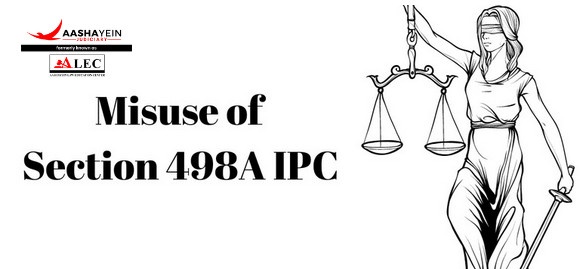The Supreme Court of India recently stated the importance of safeguarding the integrity of laws designed to protect women from cruelty and dowry harassment. In a recent ruling, in case P.V. KRISHNABHAT Vs. THE STATE OF KARNATAKA 2025 LiveLaw (SC) 149 the Court quashed a case involving allegations under Section 498A of the Indian Penal Code (IPC)(Now sec 85 of BNS,2023), asserting that criminal law should not be misused for personal vendettas.
- Section 498A of the IPC: Criminalizes cruelty by a husband or his relatives toward the wife, with penalties of up to 3 years' imprisonment and a fine. It protects women from physical or mental cruelty and dowry-related harassment.
- Dowry Prohibition Act (DP Act), 1961: Prohibits the giving or receiving of dowry and penalizes dowry demands, aiming to protect women from dowry-related violence and exploitation.
In the case of P.V. Krishnabhatt vs. State of Karnataka (Special Leave to Appeal (Crl.) No. 1754/2024), the appellant, a husband, challenged the criminal proceedings filed against him and his in-laws under Section 498A IPC and the Dowry Prohibition Act. The complainant, his wife, had accused the husband and his parents of cruelty and dowry demands.
However, the Supreme Court quashed the criminal proceedings after finding that the allegations lacked substance and were vague. The Court noted that the complainant failed to provide specific details of dowry demands or acts of cruelty. It also highlighted that the husband and the in-laws resided separately, further weakening the complainant’s case. In the absence of sufficient evidence, the Court ruled that the criminal proceedings were frivolous and amounted to an abuse of the process of law.
You can also read the latest judgment by visiting [Latest Judgment].
For more information, visit [Aashayein Enquiry Section]
Essential Concepts:
- Prima Facie Case: A prima facie case refers to the initial evidence that, unless rebutted, is sufficient to proceed with the trial. The Court emphasized the need for a prima facie case before subjecting individuals to the harshness of criminal proceedings. In this case, the allegations failed to meet this threshold.
State of Haryana v. Ch. Bhajan Lal (1992), where the Supreme Court outlined when a case could be quashed, emphasizing that vague or frivolous allegations should not lead to the continuation of criminal proceedings.
- Abuse of Process of Law: The Supreme Court underlined that criminal law should not be used for harassment or personal vendettas. The continuation of proceedings without valid evidence constitutes an abuse of the law, which would result in a miscarriage of justice.
Preeti Gupta v. State of Jharkhand (2010), where the Supreme Court emphasized that false or unsubstantiated claims under Section 498A IPC could lead to unjust consequences for the accused.
Conclusion:
The Supreme Court’s decision in P.V. Krishnabhatt v. State of Karnataka serves as an important reminder of the delicate balance that must be maintained when applying legal provisions intended to protect women from dowry harassment and cruelty. It emphasizes the need for caution and thorough examination of allegations to prevent the misuse of criminal law, ensuring justice for all parties involved.
This ruling reaffirms the principle that the law must protect women from genuine harm, but not become a tool for personal vengeance or harassment without substantiated evidence.

